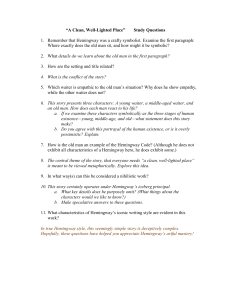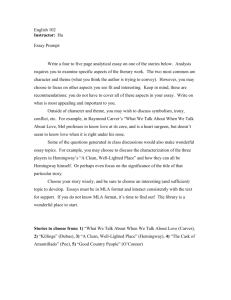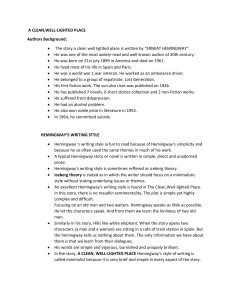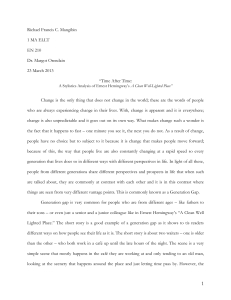Existentialism and Ernest Hemingway’s “A Clean, Well-Lighted Place”
advertisement
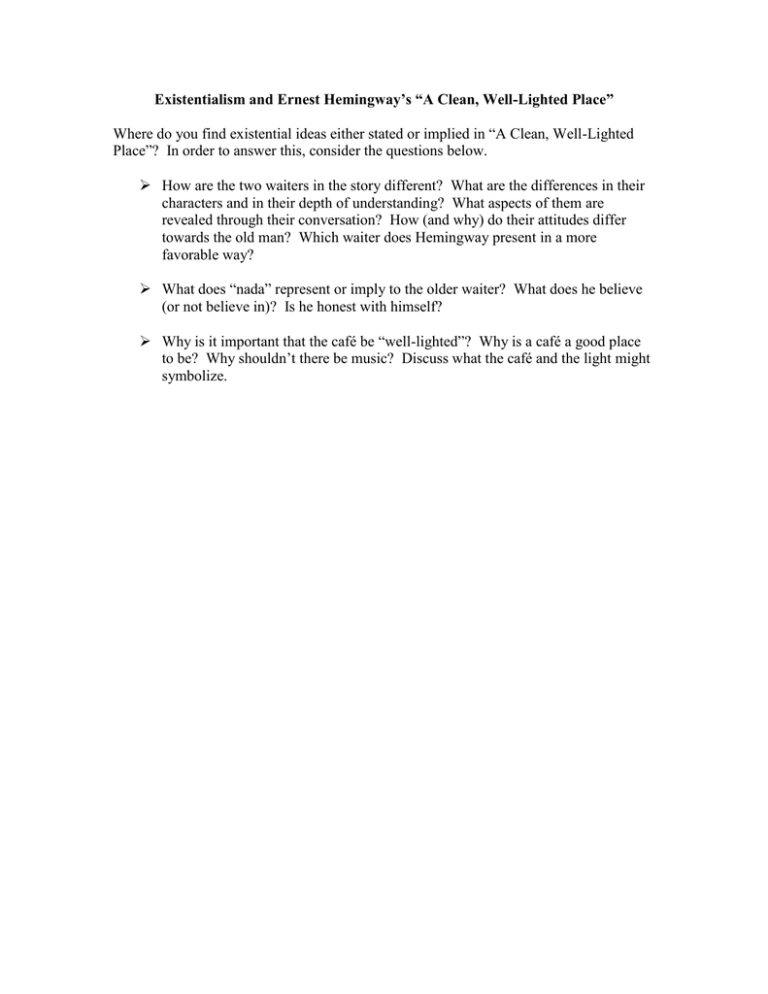
Existentialism and Ernest Hemingway’s “A Clean, Well-Lighted Place” Where do you find existential ideas either stated or implied in “A Clean, Well-Lighted Place”? In order to answer this, consider the questions below. How are the two waiters in the story different? What are the differences in their characters and in their depth of understanding? What aspects of them are revealed through their conversation? How (and why) do their attitudes differ towards the old man? Which waiter does Hemingway present in a more favorable way? What does “nada” represent or imply to the older waiter? What does he believe (or not believe in)? Is he honest with himself? Why is it important that the café be “well-lighted”? Why is a café a good place to be? Why shouldn’t there be music? Discuss what the café and the light might symbolize.
